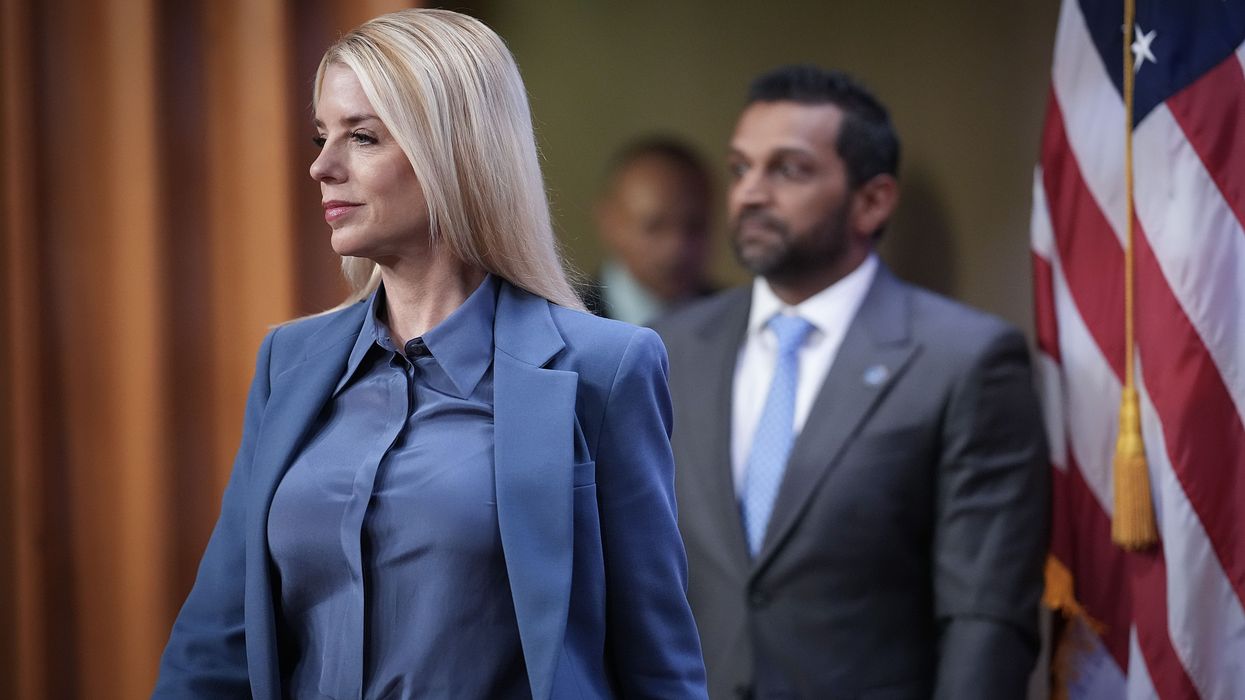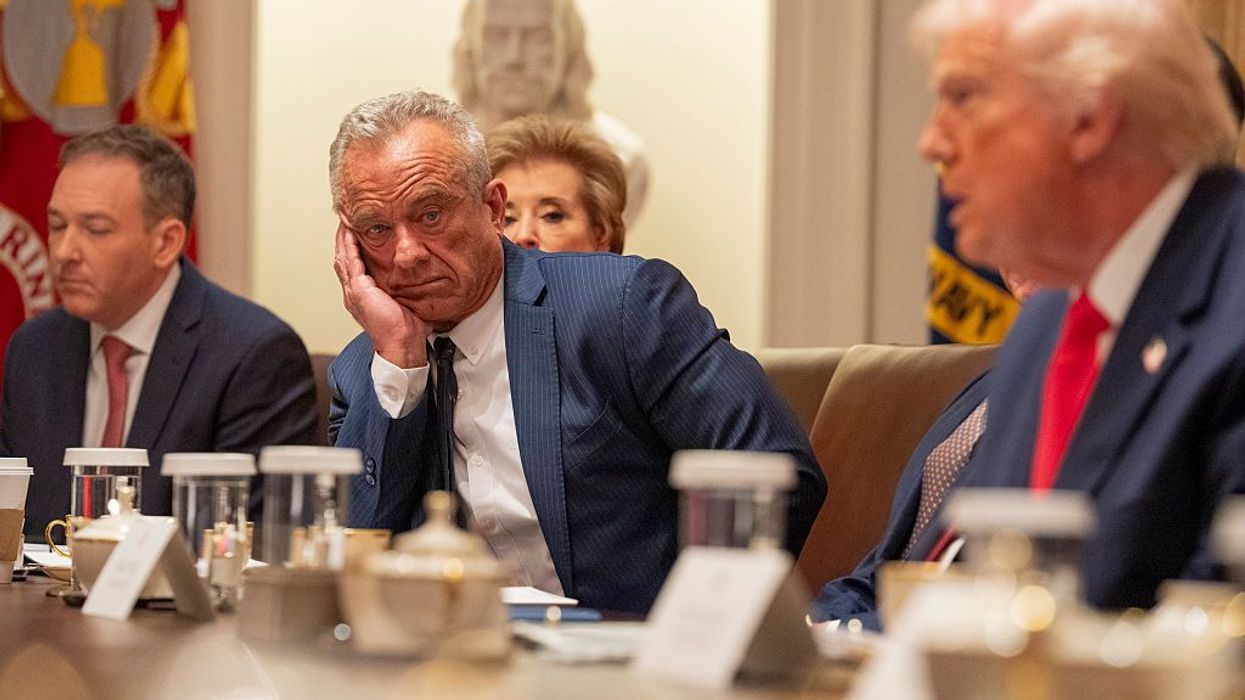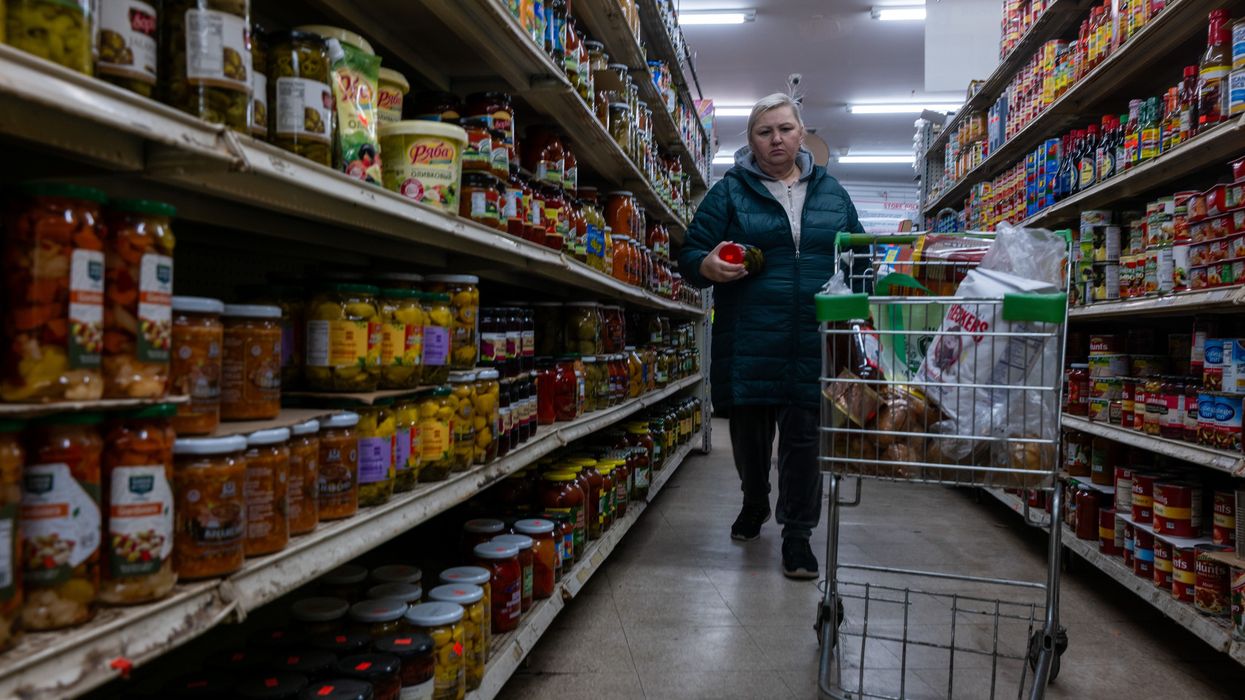March, 05 2010, 09:25am EDT

For Immediate Release
Contact:
Tel: +44 (0) 20 7413 5566,After hours: +44 7778 472 126,Email:,press@amnesty.org
UN Forces Must Remain in the Democratic Republic of Congo
Amnesty International has said it
strongly opposes any withdrawal or reduction of the numbers of UN
peacekeepers from the Democratic Republic of Congo, after the
government requested that the current force (MONUC) withdraws from the
country by June 2011.
"Instead of requiring the peacekeepers to leave, the government
should work with the UN in resolving the many protection challenges
that remain," said Tawanda Hondora, Deputy Director of Amnesty
International's Africa Programme.
LONDON
Amnesty International has said it
strongly opposes any withdrawal or reduction of the numbers of UN
peacekeepers from the Democratic Republic of Congo, after the
government requested that the current force (MONUC) withdraws from the
country by June 2011.
"Instead of requiring the peacekeepers to leave, the government
should work with the UN in resolving the many protection challenges
that remain," said Tawanda Hondora, Deputy Director of Amnesty
International's Africa Programme.
Massacres, rape, looting and other attacks on the civilian
population and humanitarian agencies by armed forces and groups
continue unabated, primarily in the war-torn east of the country.
MONUC, the biggest UN peacekeeping mission in the world with 20,500
personnel, remains the only force in the DRC capable of providing a
measure of protection to the civilian population.
"The security and human rights situation has remained dire over the
past year. Withdrawing or reducing the peacekeeping force could have
disastrous consequences," said Tawanda Hondora.
"UN peacekeeping bases are often the only places where people can seek safety when clashes occur."
The UN Secretary General proposed in 2007 a number of benchmarks
that needed to be met before considering any large-scale MONUC
withdrawal.
They included stabilization of areas where the conflict is at its
worst; completion of the disarmament and demobilization of armed
groups; and creating national armed forces with capacity to defend the
people of the DRC while respecting human rights and the rule of law.
None of these have so far been achieved.
"Government forces do not have the capacity to assume the security
functions currently fulfilled by MONUC, and the government has not
shown the political will to make its forces capable," said Tawanda
Hondora.
MONUC is not only a military peacekeeping force but includes over
5000 civilian staff that provide vital capacity-building support in
areas of human rights, humanitarian affairs, good governance, policing,
the courts and the penitentiary system.
MONUC has been deployed to the DRC since 1999. Following the end of
the 1998-2003 war, the force is now focused on the Kivus, eastern DRC,
where armed conflict continues.
Amnesty International is a worldwide movement of people who campaign for internationally recognized human rights for all. Our supporters are outraged by human rights abuses but inspired by hope for a better world - so we work to improve human rights through campaigning and international solidarity. We have more than 2.2 million members and subscribers in more than 150 countries and regions and we coordinate this support to act for justice on a wide range of issues.
LATEST NEWS
‘Throwback to McCarthyism’: Warnings as Trump DOJ’s Crackdown on Dissent Begins
A former official from Trump’s first term said the FBI will be able to throw the full might of the surveillance state at “Americans whose primary ‘offense’ may be ideological dissent.”
Dec 18, 2025
The Trump administration is about to embark on a massive crackdown on what it describes as a scourge of rampant left-wing “terrorism.”
But the US Department of Justice (DOJ) memo ordering the crackdown has critics fearing it will go far beyond punishing those who plan criminal acts and will instead be used to criminalize anyone who expresses opposition to President Donald Trump and his agenda.
Earlier this month, independent journalist Ken Klippenstein reported that Attorney General Pam Bondi had sent out a memo ordering the FBI to “compile a list of groups or entities engaging in acts that may constitute domestic terrorism.”
As part of this effort, Bondi set Thursday as a deadline for all law enforcement agencies to "coordinate delivery" of intelligence files related to “antifa” or “antifa-related activities” to the FBI.
The memo identifies those who express “opposition to law and immigration enforcement; extreme views in favor of mass migration and open borders; adherence to radical gender ideology,” as well as “anti-Americanism,” “anti-capitalism,” and “anti-Christianity," as potential targets for investigation.
This language references National Security Presidential Memorandum-7, or NSPM-7, a memo issued by Trump in September, which identified this slate of left-wing beliefs as potential "indicators" of terrorism following the assassination of right-wing activist Charlie Kirk in September.
In comments made before the alleged shooter's identity was revealed, Trump attributed the murder to "those on the radical left [who] have compared wonderful Americans like Charlie to Nazis," adding that "this kind of rhetoric is directly responsible for the terrorism that we’re seeing in our country and must stop right now."
Weeks after Kirk's shooting, Trump designated "antifa" as a "domestic terrorism organization," a move that alarmed critics because "antifa," short for "anti-fascist," is a loosely defined ideology rather than an organized political group.
Senior Trump adviser Stephen Miller, meanwhile, promised that the Trump administration would use law enforcement to "dismantle" left-wing groups he said were "fomenting violence." He suggested that merely using heated rhetoric—including calling Trump and his supporters "fascist" or "authoritarian"—"incites violence and terrorism."
Klippenstein said that “where NSPM-7 was a declaration of war on just about anyone who isn’t MAGA,” the memo that went into effect Thursday “is the war plan for how the government will wage it on a tactical level.”
In comments to the Washington Post, former FBI agent Michael Feinberg, who is now a senior editor at Lawfare, said it was "a pretty damn dangerous document," in part because "it is directed at a specific ideology, namely the left, without offering much evidence as to why that is necessary."
Studies have repeatedly shown that while all political factions contain violent actors, those who commit acts of political violence are vastly more likely to identify with right-wing causes.
Miles Taylor, who served as chief of staff for the Department of Homeland Security under the first Trump administration, pointed out in a blog post the extraordinary surveillance capability that the FBI will have at its disposal to use against those it targets.
He said it "includes the FBI’s ability to marshal facial recognition, phone-tracking databases, license-plate readers, financial records review, undercover operations, and intelligence-sharing tools against Americans whose primary 'offense' may be ideological dissent."
"Unfortunately, once you are fed into that system, there is no real 'due process' until charges are brought," Taylor said. "It’s not like you get a text-message notification when the FBI begins investigating you for terrorism offenses, and there’s certainly no 'opt-out' feature. For this to happen, you don’t need to commit violence. You don’t even need to plan it. Under the administration’s new guidelines, you merely need to be flagged for association with the anti-fascist movement to become a potential target."
Sen. Ron Wyden (D-Wash.), a member of the Senate Intelligence Committee, told the Post, "It is a throwback to McCarthyism and the worst abuses of [Former FBI Director J. Edgar] Hoover’s FBI to use federal law enforcement against Americans purely because of their political beliefs or because they disagree with the current president’s politics."
Taylor argued: "He’s right, but it’s actually more dangerous than that. Joseph McCarthy had subpoenas and hearings and created his blacklists of 'communist' Americans from Capitol Hill. And while controversial FBI Director J. Edgar Hoover may have had old-school wiretaps and informants, Donald Trump’s team has algorithmic surveillance, bulk data collection, and a post-9/11 security state designed for permanent emergency. It’s like comparing a snowflake with a refrigerator."
Keep ReadingShow Less
'Cruel and Unconstitutional': Trump, RFK Jr. Escalate War on Trans Youth With Threat Against US Hospitals
"These proposed actions would put Donald Trump and RFK Jr. in those doctor’s offices, ripping healthcare decisions from the hands of families," said one critic.
Dec 18, 2025
President Donald Trump and Health and Human Services Secretary Robert F. Kennedy Jr. on Thursday unveiled new policies aimed at cutting transgender minors off from gender-affirming care.
As reported by the New York Times, Kennedy announced new proposed rules that would bar Medicare and Medicaid from sending any funds to hospitals that carry out gender-affirming care on transgender minors, a move that would essentially force these facilities to shut down given that spending from those two programs account for nearly half of all spending on hospital care.
Dr. Mehmet Oz, the administrator of the Centers for Medicare and Medicaid Services, warned during a news conference announcing the proposed rules that hospitals are "going to pay a very steep price" if they continue providing gender-affirming care to minors.
Many hospitals throughout the US are already under financial strain while bracing for the impact of the Medicaid cuts in this year's Republican-passed budget law, which are projected to total $1 trillion over the next decade.
Dr. Susan Kressly, president of the American Academy of Pediatrics (AAP), slammed Trump administration health officials for their "unprecedented actions and harmful rhetoric" while announcing the new proposed rules, which she described as a vast overreach by the federal government.
"These rules are a baseless intrusion into the patient-physician relationship," said Kressly. "Patients, their families, and their physician—not politicians or government officials—should be the ones to make decisions together about what care is best for them. The government’s actions today make that task harder, if not impossible, for families of gender-diverse and transgender youth."
Kelley Robinson, president of the Human Rights Campaign, hammered the Trump administration for being "relentless in denying healthcare to this country, and especially the transgender community."
"Families deserve the freedom to go to the doctor and get the care that they need and to have agency over the health and well-being of their children," Robinson added. "But these proposed actions would put Donald Trump and RFK Jr. in those doctor’s offices, ripping healthcare decisions from the hands of families and putting it in the grips of the anti-LGBTQ+ fringe."
The ACLU wasted no time in announcing that it would sue the administration if it goes forward with enacting the proposed rules, which it described as an unconstitutional attack on healthcare practices that have been endorsed by both the the American Medical Association and the AAP.
Chase Strangio, co-director of the ACLU’s LGBTQ and HIV Rights Project, accused the administration of launching "cruel and unconstitutional attacks on the rights of transgender youth and their families."
"By attempting to strip away essential healthcare, the administration is not 'protecting' anyone," Strangio added. "It is weaponizing the federal government to target a vulnerable population for political gain. Healthcare decisions belong to families and their doctors, not politicians. The latest proposals from the administration would force doctors to choose between their ethical obligations to their patients and the threat of losing federal funding."
Keep ReadingShow Less
FTC Opens Investigation Into Instacart Pricing After 'Bombshell Report'
Groundwork Collaborative revealed this month that artificial intelligence-enabled pricing experiments used by the shopping app have charged users up to 23% more than others for the same products.
Dec 18, 2025
The executive director of Groundwork Collaborative, the advocacy group behind a "bombshell report" that exposed Instacart's artificial intelligence-powered pricing schemes, welcomed the news that the federal government US opening an investigation into the business practice, and urged the Federal Trade Commission to follow the probe with concrete consumer protection actions.
The FTC told Gizmodo that "like so many Americans, we are disturbed by what we have read in the press about Instacart’s alleged pricing practices.”
Groundwork joined Consumer Reports and More Perfect Union in examining Instacart's practice, using the AI pricing software Eversight, of quoting different prices to different shoppers using the company's app, which allows people to order groceries and send a shopper to pick them up.
Some customers at a Safeway in Seattle were charged a price that was 23% higher than other shoppers for Skippy peanut butter, Oscar Mayer turkey, and Wheat Thins crackers. In Washington, DC, customers using the Insacart app saw eggs priced at $3.99, while others who logged on at the exact same time were charged $4.79 for the same brand at the same store.
Instacart has the ability to change prices based on data such as ZIP code or income, though the groups did not find it is currently using that information in its pricing experiments.
Groundwork noted that the scheme is taking place as American families are already struggling to afford groceries, electricity, healthcare, and other essentials.
“At a time when families are being squeezed by the highest grocery costs in a generation, Instacart chose to run AI experiments that are quietly driving prices higher," said Lindsay Owens, executive director of Groundwork. "While the FTC’s investigation is welcome news, it must be followed with meaningful action that ends these exploitative pricing schemes and protects consumers. Instacart must face consequences for their algorithmic price gouging, not just a slap on the wrist.”
In its report, the group called on the FTC to take action under Section 5 of the Federal Trade Commission Act, which prohibits “unfair methods of competition," or to bring enforcement cases or initiate rulemaking to officially classify AI-enabled pricing strategies as "unfair and deceptive" strategies.
The progressive think tank Roosevelt Institute applauded Groundwork and its partners for the "major investigation" that pushed the FTC to act.
Instacart's shares dropped by about 7% following the news of the FTC probe.
On Thursday, the agency announced that Instacart would pay $60 million in refunds to settle separate allegations that it falsely advertised "free delivery" while charging a service fee, falsely advertised a "100% satisfaction guarantee" that suggested it would offer full refunds, and failed to disclose terms regarding Instacart+ membership.
Keep ReadingShow Less
Most Popular


